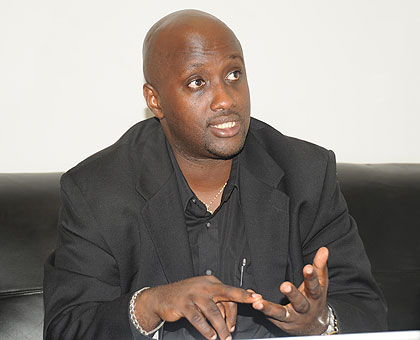Government has presented its concerns over the work accomplished by the UN-backed tribunal for Rwanda to the United Nations Security Council, saying the Tanzania-based court did not live up to the trust vested in it.


Government has presented its concerns over the work accomplished by the UN-backed tribunal for Rwanda to the United Nations Security Council, saying the Tanzania-based court did not live up to the trust vested in it.Olivier Nduhungirehe, Rwanda’s acting chargé d’affaires at the Security Council, said Kigali mainly had concerns on two aspects of the work of the International Criminal Tribunal for Rwanda (ICTR).He was on Wednesday addressing the UN Security Council. First, he said, is the time and cost of the proceedings, particularly because since its inception 17 years ago, ICTR has completed cases involving only 75 suspects, on which it has spent billions of dollars.The second cause for concern is on the decisions of the ICTR, particularly the Appeals Chamber to acquit some high profile suspects even after they were convicted by the Trial Chamber."In 1998, Jean Kambanda, the then Prime Minister of the genocidal regime, pleaded guilty of six accounts before the ICTR, including conspiracy to commit genocide with the members of his Government,” Nduhungirehe said."However, the ICTR, particularly the Appeals Chamber has, on several occasions in the last months, acquitted a number of members of that cabinet, some of whom had been heavily sentenced at the first instance.”Given both the pace of the proceedings and the acquittals of some of the masterminds of the genocide, Nduhungirehe said, "it is the feeling of our people the ICTR did not fully live up to the trust that Rwandans, particularly the genocide survivors, had vested in the Court.”The tribunal, which was set up by the UN Security Council, has since last year been replaced by the Residual Mechanism for International Tribunals which also took over from the International Criminal Tribunal for former Yugoslavia. As part of the completion strategy of the ICTR, the tribunal has referred suspects to national jurisdiction, including one of Jean Uwinkundi, who was brought to Rwanda and the two others – Laurent Bucyibaruta and catholic priest Wenceslas Munyeshyaka -- that have been referred to France."However, as we already stated before this Council in June 2011 and in December 2012, we are concerned at the fate of the cases against Laurent Bucyibaruta and Wenceslas Munyeshyaka, transferred to France in November 2007.”Nduhungirehe said that almost six years after the referral, little has been done to try the two suspects."We would however wish to request that the status of those cases, including the reasons of the delay, be communicated in the next report of the Residual Mechanism, while taking note of the ongoing monitoring arrangements for those two cases.”The ICTR branch of the Residual Mechanism began its functions on July 1, 2012 in Arusha.


